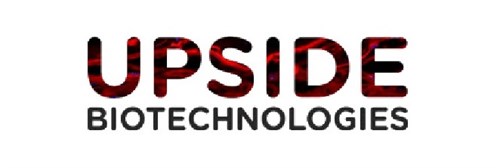Home-grown research attracts high investor interest
Home-grown, high-tech health research from the Maurice Wilkins Centre has attracted support from local and international investors, leading to three spin-out companies in as many months.
Investors have recognised not only attractive investment opportunities in the Centre's science, but also major potential to benefit patients in New Zealand and overseas.

SapVax LLC
The first spin-out company, SapVax LLC, was established in the US in a partnership between drug development accelerator BioMotiv and the University of Auckland.
The new company is advancing a novel immune therapy for cancer developed at the Maurice Wilkins Centre in a long-standing collaboration between Professor Rod Dunbar's immunology group and the medicinal chemistry team led by Distinguished Professor Margaret Brimble and Dr Geoff Williams.
The new company is working to progress its first product, a vaccine to stimulate cancer-killing T cells, into clinical development in a targeted subset of cancer patients. SapVax will make use of clinical trial resources available in New Zealand as well as the team's own clinical-grade laboratory – a facility that has already been used to manufacture vaccine components currently in clinical trial in partnership with the Malaghan Institute.

Upside Biotechnologies
Professor Dunbar is also a founder of a second start-up company, Upside Biotechnologies, this time funded by $2.3M raised almost entirely from New Zealand investors.
Upside Biotechnologies is growing human skin in the laboratory to replace skin lost in severe burns. Professor Dunbar and Affiliate Investigator Dr Vaughan Feisst have been developing the new regenerative medicine technology for five years, with support from the Maurice Wilkins Centre, the University of Auckland and the charity Cure Kids.
The project was an unexpected spin-off from the cancer vaccine project. The team had been studying immune cells purified from human skin to improve vaccine targeting, and consulted colleagues in plastic surgery about potential uses for the other skin cells. They have subsequently developed a unique method that enables a sample of a patient’s unburnt skin to be rapidly grown into large areas of full thickness skin for use in skin grafts.

Convert Pharmaceuticals
A third company, Convert Pharmaceuticals, has been incorporated in Belgium to take a new cancer drug into clinical trials. The drug CP-506 was discovered by the Translational Therapeutics Team in the Auckland Cancer Society Research Centre, led by Associate Professor Adam Patterson and Dr Jeff Smaill.
CP-506 is a cytotoxic ‘prodrug’ that is activated only in low oxygen environments such as those found in tumours. The new company is currently carrying out final pre-clinical studies and production of the drug for clinical trials, with Phase 1 trials anticipated to commence in Europe at the end of 2017.
“We're all absolutely delighted to see investors helping to take our discoveries forward into clinical trials," says Rod. "We're especially pleased to see local investors showing such confidence and excitement in New Zealand science.”
“The Maurice Wilkins Centre is aiming to bring a portfolio of exciting medical opportunities to the local investment community over the next few years, and this should lead to even more clinical trials of treatments invented here being made available to New Zealand patients."